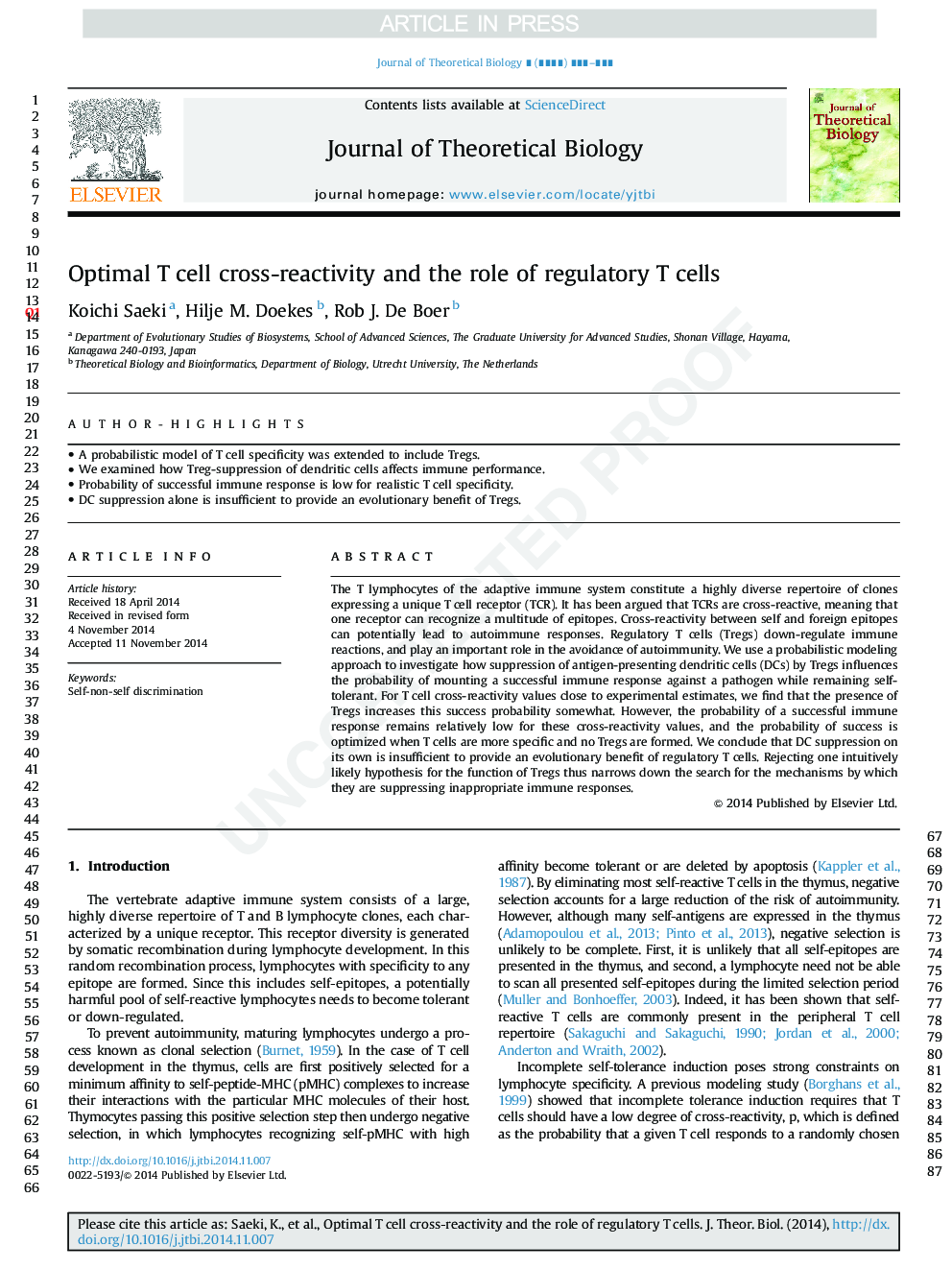| کد مقاله | کد نشریه | سال انتشار | مقاله انگلیسی | نسخه تمام متن |
|---|---|---|---|---|
| 6369748 | 1623835 | 2015 | 9 صفحه PDF | دانلود رایگان |
عنوان انگلیسی مقاله ISI
Optimal T cell cross-reactivity and the role of regulatory T cells
دانلود مقاله + سفارش ترجمه
دانلود مقاله ISI انگلیسی
رایگان برای ایرانیان
موضوعات مرتبط
علوم زیستی و بیوفناوری
علوم کشاورزی و بیولوژیک
علوم کشاورزی و بیولوژیک (عمومی)
پیش نمایش صفحه اول مقاله

چکیده انگلیسی
The T lymphocytes of the adaptive immune system constitute a highly diverse repertoire of clones expressing a unique T cell receptor (TCR). It has been argued that TCRs are cross-reactive, meaning that one receptor can recognize a multitude of epitopes. Cross-reactivity between self and foreign epitopes can potentially lead to autoimmune responses. Regulatory T cells (Tregs) down-regulate immune reactions, and play an important role in the avoidance of autoimmunity. We use a probabilistic modeling approach to investigate how suppression of antigen-presenting dendritic cells (DCs) by Tregs influences the probability of mounting a successful immune response against a pathogen while remaining self-tolerant. For T cell cross-reactivity values close to experimental estimates, we find that the presence of Tregs increases this success probability somewhat. However, the probability of a successful immune response remains relatively low for these cross-reactivity values, and the probability of success is optimized when T cells are more specific and no Tregs are formed. We conclude that DC suppression on its own is insufficient to provide an evolutionary benefit of regulatory T cells. Rejecting one intuitively likely hypothesis for the function of Tregs thus narrows down the search for the mechanisms by which they are suppressing inappropriate immune responses.
ناشر
Database: Elsevier - ScienceDirect (ساینس دایرکت)
Journal: Journal of Theoretical Biology - Volume 375, 21 June 2015, Pages 4-12
Journal: Journal of Theoretical Biology - Volume 375, 21 June 2015, Pages 4-12
نویسندگان
Koichi Saeki, Hilje M. Doekes, Rob J. De Boer,